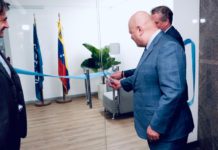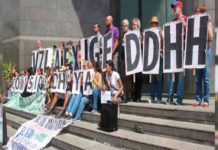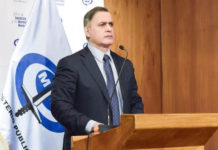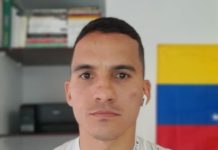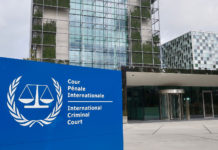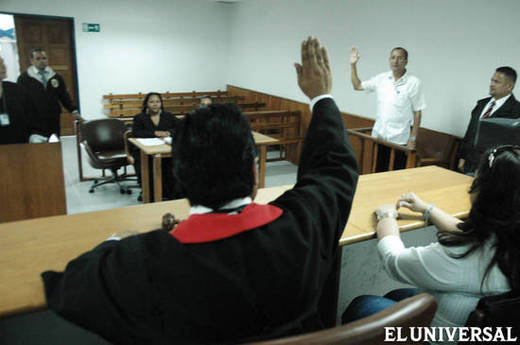
Judiciary as “an effective tool to intimidate”
Criminal lawyer Alberto Arteaga points to human rights abuses
Judge María Lourdes Afiuni never imagined that making a decision in accordance with the law would turn her life into an ordeal. The institutions -courts and public prosecutor’s offices- where she advanced her career and learned values and principles that put her among the salient judges in Venezuela, have violated all her civil rights.
She was behind bars for three years, together with inmates that she convicted. She has been under house arrest for 12 months, guarded by more than 10 National Guard officers. Afiuni suffers day by day the torture and rage of a judiciary that denies her right to due process and health. She is forbidden essentials such as taking a sunbath or being checked by her family doctors.
The Attorney General Office requested in 2011 a two-year extension of her imprisonment. The 26th Trial Court granted the petition without any hearing whatsoever. During her 26-month imprisonment, her defense attorneys have filed more than 50 actions, including applications and petitions. All of them have been denied by any and all Venezuelan courts. Furthermore, about 20 resolutions issued by international organizations, including the United Nations and the Inter-American Commission on Human Rights (UNCHR) have been ignored.
Afiuni is the most emblematic case of human rights abuses by Venezuelan State institutions. Nonetheless, in courts and in the Attorney General Office, thousands of cases have been put on ice, awaiting justice administration. Thousands of people are in jail, pending trial.
In the opinion of criminal lawyer and emeritus professor with the Central University of Venezuela (UCV) Alberto Arteaga, in Venezuela “there is lack of real criminal justice.” “Procedural delays; failure to timely settle applications; protracted lawsuits and custody awaiting trial are a glaring example of systematic human rights abuses.”
He is afraid that civil rights, enshrined in the Constitution have turned to be myths. “The right to life is inviolable, but executions by security agencies are top in the agenda, disguised as clashes, jailbreaks or resistance to the authorities. One example of the most outrageous abuse was the murder of the daughter of the Chilean consul by agents of an investigation agency. The right to freedom is also the rule. However, the term of custody awaiting trial is disregarded and having a hearing takes longer than a sentence.”
The attorney argued that no more than one year and six months should pass for the preliminary hearing. Actually, this stage can span three to five years.
Based on a case study from the Citizen’s Coexistence Research Institute (Incosec), procedural delays in Venezuela amount to 75%; the remaining 25% of cases are settled. In 75.5% of these cases, the facts were admitted. According to Arteaga, such numbers show that Venezuelans “do not trust anymore” in institutions. To his mind, the judiciary acts just “as an effective tool of intimidation and looming danger, not only for freedom but for life.”
@aliciadelarosa
Translated by Conchita Delgado


